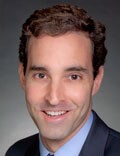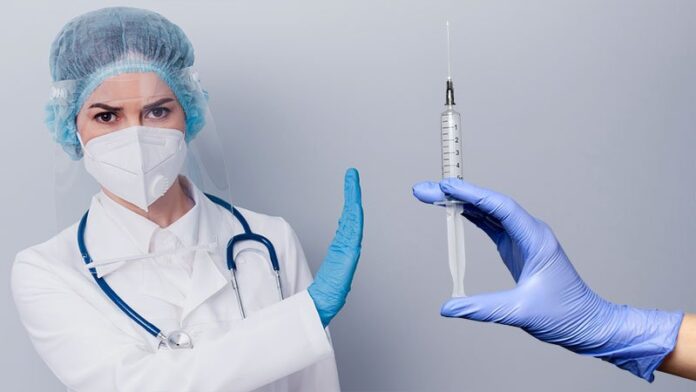[ad_1]
Editor’s note: Find the latest COVID-19 news and guidance in Medscape’s Coronavirus Resource Center.
Nearly 60% of those working in a large healthcare system expressed their intent to roll up their sleeves to receive the COVID-19 vaccine, but about one third were unsure of doing so.
Moreover, 54% of direct care providers indicated that they would take the vaccine if offered, compared with 60% of noncare providers.
The findings come from what is believed to be the largest survey of healthcare provider attitudes toward COVID-19 vaccination, published online January 25 in Clinical Infectious Diseases.

Dr Jana Shaw
“We have shown that self-reported willingness to receive vaccination against COVID-19 differs by age, gender, race and hospital role, with physicians and research scientists showing the highest acceptance,” Jana Shaw, MD, MPH, SUNY Upstate Medical University, Syracuse, New York, the study’s corresponding author, told Medscape Medical News. “Building trust in authorities and confidence in vaccines is a complex and time-consuming process that requires commitment and resources. We have to make those investments as hesitancy can severely undermine vaccination coverage. Because healthcare providers are members of our communities, it is possible that their views are shared by the public at large. Our findings can assist public health professionals as a starting point of discussion and engagement with communities to ensure that we vaccinate at least 80% of the public to end the pandemic.”
For the study, Shaw and her colleagues emailed an anonymous survey to 9565 employees of SUNY Upstate, an academic medical center that cares for an estimated 1.8 million people. The survey, which contained questions intended to evaluate attitudes, belief, and willingness to get vaccinated, took place between November 23 and December 5, about a week before the US Food and Drug Administration granted the first emergency use authorization for the Pfizer-BioNTech BNT162b2 mRNA vaccine.
Survey recipients included physicians, nurse practitioners, physician assistants, nurses, pharmacists, medical and nursing students, allied health professionals, and nonclinical ancillary staff.
Of the 9565 surveys sent, 5287 responses were collected and used in the final analysis, for a response rate of 55%. The mean age of respondents was 43, 73% were female, 85% were White, 6% were Asian, 5% were Black/African American, and the rest were Native American, Native Hawaiian/Pacific Islander, or from other races. More than half of respondents (59%) reported that they provided direct patient care and 32% said they provided care for patients with COVID-19.
Of all survey respondents, 58% expressed their intent to receive COVID-19 vaccine, but this varied by their role in the healthcare system. For example, in response to the statement, “If a vaccine were offered free of charge, I would take it,” 80% of scientists and physicians agreed that they would, while colleagues in other roles were unsure whether they would take the vaccine, including 34% of registered nurses, 32% of allied health professionals, and 32% of master’s-level clinicians. These differences across roles were significant (P < .001).
The researchers also found that direct patient care or care for COVID-19 patients was associated with lower vaccination intent. For example, 54% of direct care providers and 62% of noncare providers indicated they would take the vaccine if offered, compared with 52% of those who had provided care for COVID-19 patients vs. 61% of those who had not (P < .001).
“This was a really surprising finding,” said Shaw, who is a pediatric infectious diseases physician at SUNY Upstate Medical Center. “In general, one would expect that perceived severity of disease would lead to a greater desire to get vaccinated. Because our question did not address severity of disease, it is possible that we oversampled respondents who took care of patients with mild disease (ie, in an outpatient setting). This could have led to an underestimation of disease severity and resulted in lower vaccination intent.”
Table of Contents
A Focus on Rebuilding Trust
Survey respondents who agreed or strongly agreed that they would accept a vaccine were older (a mean age of 44 years), compared with those who were not sure or who disagreed (a mean age of 42 vs 38 years, respectively; P < .001). In addition, fewer females agreed or strongly agreed that they would accept a vaccine (54% vs 73% of males), whereas those who self-identified as Black/African American were least likely to want to get vaccinated compared with those from other ethnic groups (31%, compared with 74% of Asians, 58% Whites, and 39% of American Indians or Alaska Natives).
“We are deeply aware of the poor decisions scientists made in the past, which led to a prevailing skepticism and ‘feeling like guinea pigs’ among people of color, especially Black adults,” Shaw said. “Black adults are less likely compared to White adults to have confidence that scientists act in the public interest. Rebuilding trust will take time and has to start with addressing healthcare disparities. In addition, we need to acknowledge contributions of Black researchers to science. For example, until recently very few knew that the Moderna vaccine was developed [with the help of] Dr Kizzmekia Corbett, who is Black.”
The top five main areas of unease that all respondents expressed about a COVID-19 vaccine were concern about adverse events/side effects (47%), efficacy (15%), rushed release (11%), safety (11%), and the research and authorization process (3%).
“I think it is important that fellow clinicians recognize that in order to boost vaccine confidence we will need careful, individually tailored communication strategies,” Shaw said. “A consideration should be given to those [strategies] that utilize interpersonal channels that deliver leadership by example, and leverage influencers in the institution to encourage wider adoption of vaccination.”

Dr Aaron Milstone
Aaron M. Milstone, MD, MHS, asked to comment on the research, recommended that healthcare workers advocate for the vaccine and encourage their patients, friends, and loved ones to get vaccinated. “Soon, COVID-19 will have taken more than half a million lives in the US,” said Milstone, a pediatric epidemiologist at Johns Hopkins University School of Medicine in Baltimore, Maryland. “Although vaccines can have side effects like fever and muscle aches, and very, very rare more serious side effects, the risks of dying from COVID are much greater than the risk of a serious vaccine reaction. The authors shed light on the ongoing need for leaders of all communities to support the COVID vaccines, not just the scientific community, but religious leaders, political leaders, and community leaders.”
Addressing Vaccine Hesitancy
Informed by their own survey, Shaw and her colleagues have developed a plan to address vaccine hesitancy to ensure high vaccine uptake at SUNY Upstate. Those strategies include, but aren’t limited to, institution-wide forums for all employees on COVID-19 vaccine safety, risks, and benefits followed by Q&A sessions, grand rounds for providers summarizing clinical trial data on mRNA vaccines, development of an Ask COVID email line for staff to ask vaccine-related questions, and a detailed vaccine-specific FAQ document.
In addition, SUNY Upstate experts have engaged in numerous media interviews to provide education and updates on benefits of vaccination to public and staff, stationary vaccine locations, and mobile COVID-19 vaccine carts. “To date, the COVID-19 vaccination process has been well received, and we anticipate strong vaccine uptake,” she said.
Shaw acknowledged certain limitations of the survey, including its cross-sectional design and the fact that it was conducted in a single healthcare system in the northeastern United States. “Thus, generalizability to other regions of the US and other countries may be limited,” Shaw said. “The study was also conducted before EUA was granted to either the Moderna or Pfizer-BioNTech vaccines. It is therefore likely that vaccine acceptance will change over time as more people get vaccinated.”
The authors have disclosed no relevant financial relationships. Milstone disclosed that he has received a research grant from Merck but not related to vaccines.
Clinical Infectious Diseases. Published online January 25, 2021. Abstract
For more news, follow Medscape on Facebook, Twitter, Instagram, and YouTube.
[ad_2]
Source link












